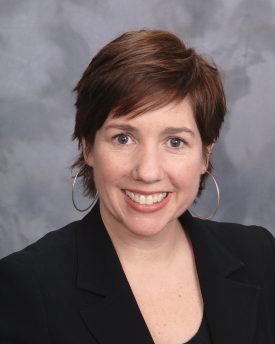
Cara Cuite, associate research professor, Department of Human Ecology.
Rachael Shwom and Cara Cuite, Department of Human Ecology, are part of a multi-university team that received a grant in October 2016 from the National Science Foundation, through their Innovations at the Nexus of Food, Energy and Water program. The total grant was for $2,983,358, and Rutgers is receiving $419,184 for the project: Reducing Household Food, Energy and Water Consumption: A Quantitative Analysis of Interventions and Impacts of Conservation.
Cara Cuite, associate research professor, is a health psychologist who studies community food security, risk communication and public perceptions of food-related issues, including food safety and genetically engineered foods. Rachael Shwom, an associate professor, is a sociologist who is interested in how different groups of people in society make sense of and respond to energy and climate change problems.
Their project focuses on understanding and seeking ways to reduce greenhouse gas emissions through conservation of household consumption of food, energy and water. Experimental research will be conducted in residential households in two case-study communities, selected to be representative of U.S. suburban households.
More than 20 students and early-career scientists from underrepresented groups will join the large research team and will have the opportunity to train and collaborate with colleagues across the United States and the Netherlands, a highly industrialized nation that uses 20% less energy and water per person than the U.S.
The graduate students will be involved in multiple aspects of the grant including: 1) the development of role playing games 2) the development of household food, energy, and water consumption data collection procedures, and 3) the development and analysis of household practices to decrease household greenhouse gas emissions via food, energy and water consumption.
The project is scheduled to conclude in September 2021 and the tracking tools, impact models and role-playing software that will be developed in this research will be publicly available at the end of the project in order to inform future research, education and outreach activities.


